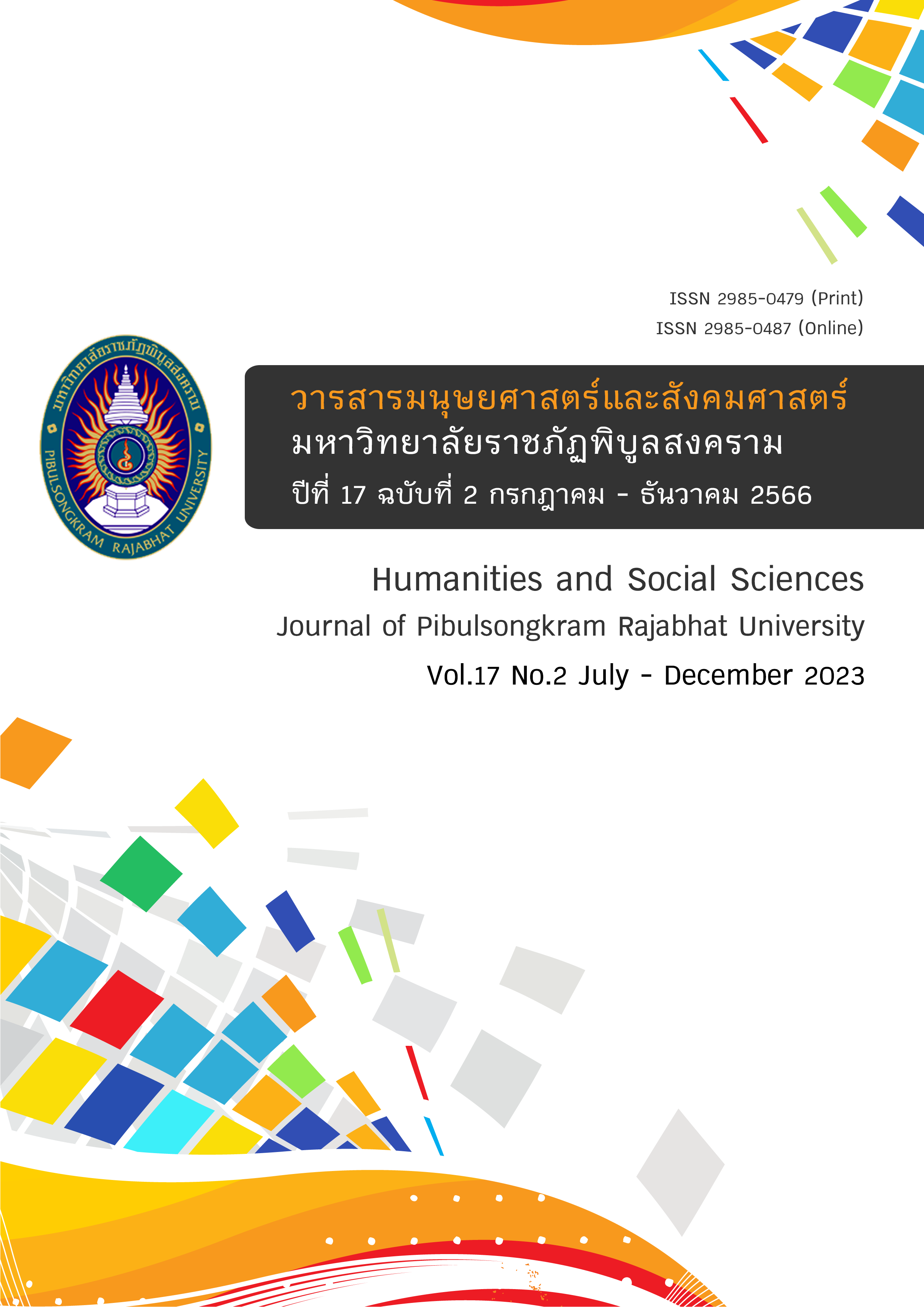Solutions to the Agent Problems
DOI:
https://doi.org/10.14456/psruhss.2023.32Keywords:
Agency problems, International corporate law, Corporate governance, Financial rewardingAbstract
This academic article examines the agency principles and conflicts that may arise due to differing interests of owners and managers, with those of their subject matters. International corporate
law is expanding due to globalisation and legal national boundaries, and agency problems are recognized as significant factors in the globalisation of corporate law. This article, however, not only posits several issues and challenges to accomplish dispute implementations but also illustrates that the secured theory of foundational elements of the agency are far less settled. The content provides a review of the fundamental agency problems and its mitigation through corporate governance, independent directors, financial rewarding equity, and the external market for corporate control under an overseas company law framework. Therefore, the solutions of the agent problems in globalisation will be analysed along with three principal approaches.
References
Abbasi, M. Z. (2009). Legal analysis of Agency Theory: an inquiry into the nature of corporation. International Journal of Law and Management, 51(6), 401-420.
Agrawal, A. &. (1996). Firm performance and mechanisms to control agency problems between managers and shareholders. Journal of financial and quantitative analysis, 31(3), 377-397.
Allen, F., & Zhao, M. (2007). The corporate governance model of Japan: shareholders are not rulers. PKU Business Review, 36(7), 98-102.
Arjoon, S. (2005). Corporate governance: An ethical perspective. Journal of business ethics, 61, 343-352.
Armour, J., Hansmann, H., & Kraakman, R. (2009). Agency Problems, Legal Strategies, and Enforcement. Cambridge: University of Harvard. Retrieved from https://dash.harvard.edu/handle/1/30064404
Boshkoska, M. (2015). The Agency Problem: Measures for Its Overcoming. International Journal of Business and Management, 10(1), 204-209.
Cohen, J., Krishnamoorthy, G., & Wright, A. (2010). Corporate governance in the post‐Sarbanes‐Oxley era: Auditors’ experiences. Contemporary Accounting Research, 27(3), 751-786.
Fernando, A. C. (Ed.). (2009). Corporate ethics, governance, and social responsibility: Precepts and practices. Pearson Education India.
George, G. (1989). In Search of General Jurisdiction. Tulane Law Review, 64, 1097.
Hájek, F. (2006). Approaching the End of a Tunnel: Shareholder Protection and Private Benefits of Control in the Czech. Prague: Institute of Economic Studies, Charles University. Retrieved from Institute of Economic Studies, Faculty of Social Sciences.
Hall, J. H. (1998). The agency problem, agency cost and proposed solutions thereto : a South African perspective. Meditari Accountancy Research, 6, 145-161.
Hannigan, B. (2016). Company Law. Oxford: Oxford University Press.
Huang, R. H., & Thomas, R. S. (2020). The Law and Practice of Shareholder Inspection Rights: Comparative Analysis of China and the United States. Vand. J. Transnat'l L., 53, 907.
Jensen, M. C., & Meckling, W. H. (1976). Theory of the firm: Managerial behavior, agency costs and ownership structure. Journal of financial economics, 3(4), 305-360.
Jerzemowska, M. (2006). The Main Agency Problems and Their Consequences. Acta Oeconomica Pragensia, 9-17.
Knapp, V. (2021). Sustainable Corporate Governance: A Way Forward?. European Company and Financial Law Review, 18(2), 218-243.
Körner, P. (2008). Three essays on corporate governance and corporate finance. Prague: Charles University.
Kuypers, A. (2011). How is dealt with the agency problem and what is the role of the board of directors in it. Retrieved from Integer-Valued Time Series: https://arno.uvt.nl/show.cgi?fid=129369
La Porta, R., Lopez‐de‐Silanes, F., Shleifer, A., & Vishny, R. W. (2000). Agency problems and dividend policies around the world. The Journal of Finance, 55(1), 1-33.
Laikram, S., & Pathak, S. (2021). Legal Implications of Being a Prostitute Amid COVID-19: A Gender-Based Research in Thailand. ABAC Journal, 41(3), 90-109.
Laikram, S., & Pathak, S. (2021). PUBLIC PROCUREMENT REGULATION: INCREASING DEVELOPING INTEGRATION IN ASEAN. Journal of Legal, Ethical and Regulatory Issues, 24(6), 1-14.
Laikram, S., & Summers, G. (2019). International and Regional Trade Agreements: Enhancing the Well-Being for ASEAN’s Developing Countries? Retrieved from https://kyotoreview.org/issue-26international-regional-trade- agreements-enhancing-well-being-for-aseans-developing-countries/
Liker, J. K., & Morgan, J. M. (2006). The Toyota Way in Services: The Case of Lean Product Development. Academy of management perspectives, 20(2), 5-20.
Loo, S. (2012). The Effect of the Hostile Takeovers on Companies’ Corporate Governance. Hamburg: Bucerius Law School.
Madaschi, A. (2010). Copenhagen Business School. Retrieved from Research Output from Copenhagen Business School (CBS): https://research-api.cbs.dk/ws/portalfiles/portal/58450793/andrea_madaschi.pdf
Organisation for Economic Co-operation and Development OECD. (2015). G20/OECD Principles of Corporate Governance. Paris: OECD Publishing. Retrieved from https://www.oecd-ilibrary.org/governance/g20-oecd-principles-of-corporate-governance-2015_9789264236882-en
Sertsios, G. (2012). Mitigating Agency Problems through Investment Decisions: Evidence from Franchising. SSRN Working Paper Series.
United States Government Publishing Office GPO.(2021). SARBANES-OXLEY ACT OF 2002. Retrieved from https://www.govinfo.gov/content/pkg/COMPS-1883/pdf/COMPS-1883.pdf
Walton, M. (2007). Corporate Governance and Agency Problems-Consequences for Efficiency and Equity. Retrieved from Michaelwalton.info: http://www.michaelwalton.info/wp-content/uploads/2011/08/Corporate-governance-and-agency.pdf
Downloads
Published
How to Cite
Issue
Section
License
Copyright (c) 2023 Humanities and Social Sciences Journal of Pibulsongkram Rajabhat University

This work is licensed under a Creative Commons Attribution-NonCommercial-NoDerivatives 4.0 International License.
Any articles or comments appearing in the Journal of Humanities and Social Sciences, Rajabhat Phibulsongkram University, are the intellectual property of the authors, and do not necessarily reflect the views of the editorial board. Published articles are copyrighted by the Journal of Humanities and Social Sciences, Rajabhat Phibulsongkram University.









